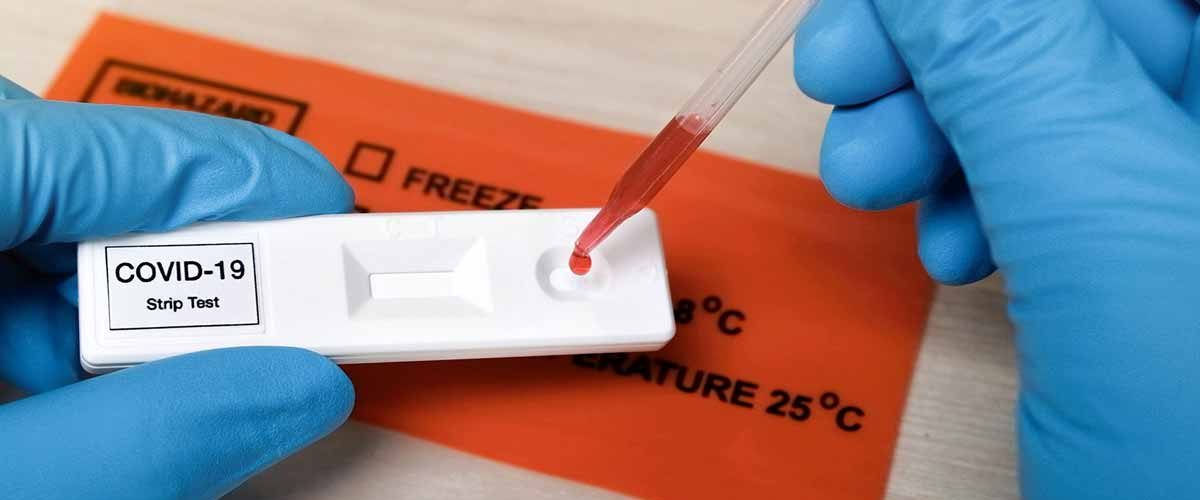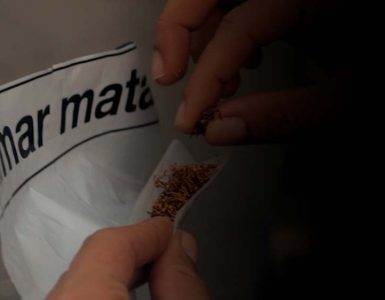University of Birmingham
Using dried blood spot samples (DBS) is an accurate alternative to venous blood in detecting SARS-CoV-2 antibody tests, a new study by immunology experts at the University of Birmingham has found.
Currently antibody testing for COVID-19 uses serum or plasma, which requires a full intravenous blood sample, collected by a trained phlebotomist. For population-wide or high volume testing, the use of such sampling is limited by logistic challenges, resources, and costs, as well as the risk of SARS-CoV-2 exposure from direct patient contact. In contrast, DBS sampling is simple, inexpensive and can be self-collected by the patient at home, using a simple finger prick. The sample can then be collected on a forensic grade card before being posted back to labs for processing. This offers exciting possibilities to widen access to antibody testing particularly in more resource limited countries.
Researchers analysed serum and DBS samples from volunteers at University Hospitals Birmingham Foundation NHS Trust, some of whom had previously tested positive for SARS-CoV-2 by molecular tests, while the status of other volunteers was either negative or unknown. The anonymised matched serum and DBS samples were then processed using a highly sensitive ELISA test, developed by the University’s Clinical Immunology Service in partnership with The Binding Site, which specifically detects antibodies (IgG, IgA and IgM) to the SARS-CoV-2 trimeric spike protein.
Results showed a significant correlation between matched DBS and serum samples and minimal differences in results observed by sample type, with negligible discordance. Relative to serum samples, DBS samples achieved 98% sensitivity and 100% specificity for detecting anti-SARS-CoV-2 S glycoprotein antibodies. 100% of the PCR-positive samples were also antibody-positive in DBS.
Senior author Dr Matthew O’Shea from the University’s Institute of Immunology and Immunotherapy said: “Our results have demonstrated that dry blood spot sampling not only offers a viable alternative for antibodies testing, but one that overcomes the limitations that current methods can present by eliminating the need for skilled phlebotomists.
“DBS offers the opportunity for wider population-level testing and improved surveillance in vulnerable groups such as patients with chronic conditions, the immunocompromised and the elderly by removing the need to come into contact with a healthcare professional during sample collection.”
Co-author Professor Adam Cunningham from the Institute of Immunology and Immunotherapy said: “As well as offering the opportunity for improved population-wide antibody testing in the UK, the simplicity and cost-effectiveness of the dry blood spot method could improve the effectiveness of sampling in low and middle-income countries, among groups where venepuncture is culturally unacceptable or in geographically dispersed populations.”
















Add comment